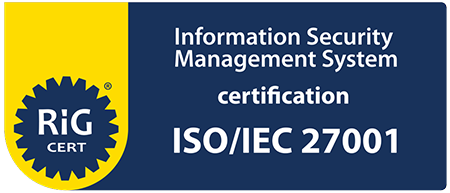How Well Do We Accept Differing Opinions and Do We Respond to Feedback Appropriately
When we’re trying to give feedback, this can mean both the ability to express our opinions and being capable of accepting the thoughts of others. This doesn’t always come easily to everyone.
And yet, receiving and processing feedback seems to be a far more difficult task than giving it ourselves.
In this article, we’ve outlined a few pointers to help you respond professionally to feedback in the workplace.
The Ability to Listen
When receiving feedback, it’s important to listen and pay attention, without impatiently waiting for our turn to talk. Receiving criticism tends to put us on the defensive, prompting us to look for arguments in our favour, at which point we cease to listen. It’s important we put effort into staying in the present and focusing on what’s being said.
Recommendation:
If you know you’re about to receive feedback, take the opportunity to mentally prepare not to react impulsively. Take what’s said into account and think about how it can be of service to you. You can address the topic at a future date if you decide you have something important to say, so don’t worry about missing your chance to share your thoughts.
If you’re in a managerial role and your employees are giving you feedback, it would be appropriate to let them know which of the things discussed you’ll take into consideration and which you’ll overlook (don’t explain why!). This way you show your employees their opinion matters.
Ask Questions
If something’s unclear, ask. You can request specific examples. You need to be clear on what the other side is trying to communicate. You don’t have to agree with what’s being said, as the point is not whether or not the given person is right in their opinion. You need to walk away with a clear idea of what they meant.
Don’t Go on the Defensive
Often, our instinct is to go on the defensive when receiving feedback. While it’s normal, it’s not necessary! On the contrary: it’s crucial there’s a way to give feedback without it leading to endless heated discussions.
If it’s important to you and the person giving the feedback, share your point of view on the matters being brought up. Your intention here should be to exchange opinions and not to try to convince the other party. At this stage, you should allow for the differing opinions to be as they are. Reflect on what was said when you have the space to do so calmy.
If you’re not used to receiving feedback, it can feel difficult and foreign. If this is the case, our recommendation is, before the conversation even begins, to set an intention of receiving the information with gratitude and grace and not reacting in the moment. This will take some of the pressure off.
It’s Up to You How You Respond to Feedback
You don’t always have control over when and how you receive feedback. For example, the company you work for might require you to participate in discussions involving feedback. A co-worker could express an opinion on a presentation you did, without having been asked (which isn’t a bad thing in and of itself!). Ultimately, however, what you do with that feedback is up to you.
It's not possible to please everyone – both the giver and receiver of feedback have to keep this in mind. Feedback is an expression of the subjective opinion of the person giving it and it allows you to see the other’s perspective. There’s an infinite number of points of views and it’s impossible to live up to everyone’s expectations. Don’t feel bad if you completely disagree with the feedback you’ve received. Sometimes, the opinion of the other person has more to do with them than it does with you.
Despite this, if you know from the very beginning that you won’t be taking the other party’s words into account, it’s better not to start a conversation at all. That can only lead to disappointment on both sides and a deterioration of the relationship. This is why requiring employees to give mandatory feedback is pointless.
Accept Positive Reviews
Adequate feedback often includes positive evaluations. Accept such reviews with the same amount of attention you show for criticism, because they’re just as important. Finding out what you’re good at is crucial for the development of your strong suites. You are more likely to be successful fostering your strengths than you are trying to compensate for your shortcomings. So don’t insist on hearing only about what you should improve!
Show Gratitude
Feedback gives you information you can only find out through other people – more specifically, how you affect those around you. This allows you to further develop and be more successful both professionally and in your personal life.
Upper-level management in particular has difficulties getting honest feedback, so make sure you appreciate your co-workers and employees taking the time to share their stance. This will encourage them to keep investing time and effort into giving you actionable feedback.
Contemplate the Feedback You’ve Received
To make the most of it, it’s important to fully understand the feedback you’ve received. Contemplate what’s been said calmly, ask yourself what it means to you and how you would like to proceed.
If you’re unsure what your next steps should be, but you keep thinking about what was said, ask for help from those closest to you professionally and in your private sphere.
Individual assessments shouldn’t be done anonymously as it’s extremely personal and this way you can’t ask clarifying questions. If your company has structured the process in a way where feedback is anonymous, you could ask for professional support. If you have the option to consult a coach, they can help you approach the issue systematically and help you decide on your next steps. This way you won’t be left to deal with the feedback on your own and you can utilize it to your full advantage for your further development.
Discovering your potential for development and that of your company relies on getting timely feedback.
Find out about the Company Specific 360 Feedback tool and see how it can help you cultivate a work environment where feedback is truly conducive to growth.




